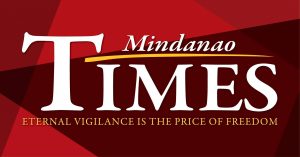 DAVAO CITY (MindaNews) – The city government has discouraged offices and business establishments from asking individuals to fill out contact-tracing forms and logbooks, urging them to completely shift to Safe Davao QR (DQR) for a more efficient contact-tracing system.
DAVAO CITY (MindaNews) – The city government has discouraged offices and business establishments from asking individuals to fill out contact-tracing forms and logbooks, urging them to completely shift to Safe Davao QR (DQR) for a more efficient contact-tracing system.
Lemuel Ortonio, Human Resource Management Office (HRMO) head who leads the implementation of the DQR system, said during an interview over Davao City Disaster Radio (DCDR 87.5) on Wednesday that although they have yet to fully implement the digital contact-tracing system, offices and business establishments have been encouraged to already use the DQR.
He said the use of the “traditional pen and paper” should be a last resort. Ortonio said that for now, only offices and business establishments can scan the DQR codes of individuals, connecting directly to the city government’s network, while waiting for the approval of the tech giants Google and Apple for the apps to be available in their Play Store and App Store, respectively, so individuals can download the apps on their smartphones.
Once the app will be available for the general public, they can now use their phones to scan the establishments’ DQR codes. Without approval from the tech giants, he said the local government could not yet fully implement the digital contact-tracing platforms.
Once the scanning feature is made available to individuals, he said the use of the traditional “pen and paper” will be highly discouraged as data collected from these forms are difficult to incorporate in the digital platform.
“Let’s make it a lifestyle because, ultimately, the main goal of the DQR is for the benefit of all because it will be easier to trace close contacts,” he added. An ordinance requiring the mandatory implementation of the DQR system for all establishments and individuals was passed by the city council last December 7.
The ordinance penalizes individuals who take advantage of the DQR for “non-essential” purposes, use cancelled DQR codes, or refuse to present valid codes for scanning or inspection when so required by persons of authority.
Under the ordinance, first time-offenders of its provisions will be penalized with a reprimand; a fine of P500 or community service, or both, for second time-offenders; and a fine of P1,500 or month imprisonment, or both, for the third-time offenders.
The ordinance likewise prescribes the penalty of P500 for a first offense, P1,000 for a second offense, and P1,500 or one-month imprisonment, or both, for a third offense, for the following prohibited acts: lending of personal DQR to another person, use and possession of a fake DQR, use of a fake ID, birth certificate, and business registration number, or another individual’s ID or birth certificate or another’s business registration number to register for a DQR, making or selling fake identifies for DQR registration, and hacking of the DQR system and or identity theft.
It added that any person guilty of tampering or hacking the online link will be prosecuted for cybercrimes under Republic Act 10175 (Cybercrime Prevention Act) and any violations involving RA 10173 (Data Privacy Act).
The Task Force Davao, Davao City Police Office, City Health Office, and barangay officials have been directed to strictly enforce the ordinance.
The DQR system, an electronic contact-tracing and travel pass platform intended to implement contactless gathering and electronic storage of data, must be used by all individuals, be they residents or non-residents, who need to enter the city for essential or work/business purposes.
Establishments, covering government and private offices, event venues, hospitals, hotels, malls, stores, groceries, mini-marts, restaurants, carinderia, palengke, places of worship, educational institutions and all other organizations, including their sub-offices or branches, are also required to implement the system. (Antonio L. Colina IV / MindaNews)
